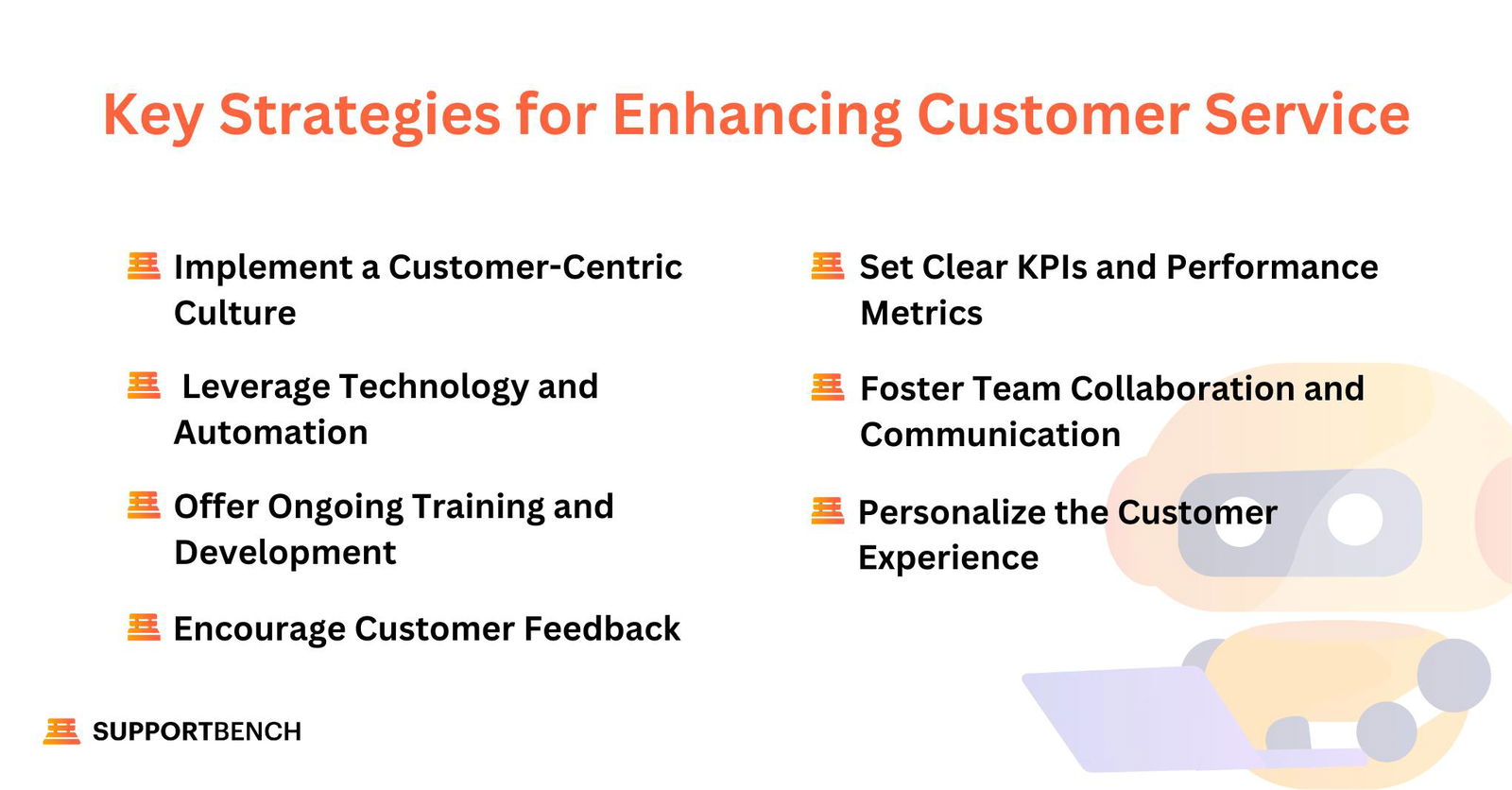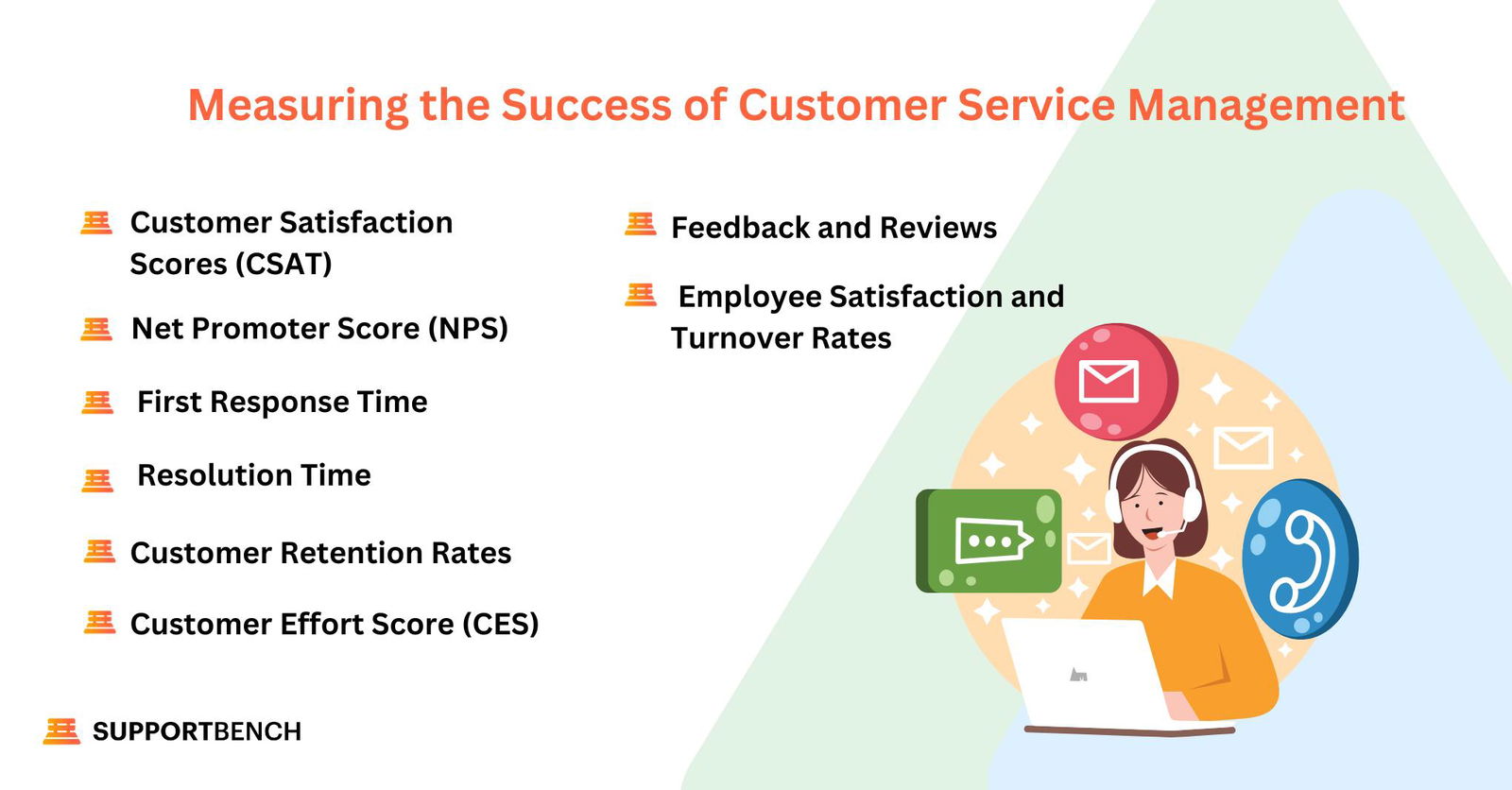Customer service is the backbone of any thriving business. It’s not just about solving problems—it’s about fostering lasting relationships with customers. Effective customer service management plays a pivotal role in shaping a company’s reputation, driving customer satisfaction, and boosting overall business performance. In this blog, we’ll explore the key benefits of strong customer service management and share strategies to implement it effectively.
What are the benefits of customer service management?
Customer service management is crucial for any business aiming to maintain high customer satisfaction, increase retention, and boost profitability. Here are the key benefits:
- Improved Customer Satisfaction: Efficient management ensures timely, effective support, making customers feel valued. This leads to higher satisfaction, greater brand loyalty, and repeat business.
- Increased Customer Retention: Proactively addressing issues and anticipating customer needs helps reduce churn, fostering long-term loyalty and stronger relationships.
- Boosted Brand Reputation: Consistently excellent customer service enhances your brand’s reputation, driving positive word-of-mouth and new business opportunities.
- Enhanced Operational Efficiency: Streamlining workflows and optimizing performance reduces response times and improves issue resolution, boosting team efficiency.
- Employee Satisfaction and Retention: Clear expectations, strong leadership, and training contribute to a motivated, productive team with lower turnover rates.
- Higher Revenue and Profitability: Satisfied customers are more likely to make repeat purchases, recommend your business, and engage in upselling, ultimately driving revenue growth.
What are the key strategies for enhancing customer service?
Effective customer service strategies are crucial for improving customer experiences, increasing satisfaction, and driving business success. Here are key strategies to implement:

Implement a Customer-Centric Culture
Instilling a customer-first mentality in your team is essential. Ensure each member understands the importance of delivering their best while considering the customers’ needs. Training and clear communication of company values and goals will align team efforts toward exceptional service.
Leverage Technology and Automation
Use customer service tools like ticketing systems, live chat, and AI-powered solutions to streamline operations and reduce response times. Automation allows the team to focus on complex tasks, enhancing efficiency.
Offer Ongoing Training and Development
Continuously train your team to keep up with best practices, new technologies, and customer expectations. Regular sessions boost confidence, improve problem-solving skills, and equip employees to handle various customer scenarios.
Set Clear KPIs and Performance Metrics
Establish KPIs such as first response time, resolution time, and customer satisfaction scores (CSAT) to give your team measurable goals. Regularly track performance, identify areas for improvement, and celebrate top performers.
Encourage Customer Feedback
Seek feedback via surveys, reviews, and follow-up emails to understand how well your team meets customer needs. Implement changes based on this feedback, showing your commitment to customer satisfaction.
Foster Team Collaboration and Communication
Encourage effective communication within your team to solve complex issues. Use collaboration tools and hold regular team meetings to ensure everyone is aligned and can provide the best solutions to customers.
Personalize the Customer Experience
Tailor interactions to meet individual customer needs. By analyzing customer data, your team can offer personalized solutions, recognize repeat customers, and anticipate their needs for a more positive experience.
How to Measure the Success of Your Customer Service Management
To evaluate the effectiveness of your customer service management, it’s important to regularly track key performance metrics. Here’s how you can measure the success of your efforts:

Customer Satisfaction Scores (CSAT)
CSAT scores are derived from customer feedback surveys and indicate how satisfied customers are with the service provided. High scores typically show that your team is meeting or exceeding expectations.
Net Promoter Score (NPS)
NPS gauges customer loyalty by asking how likely customers are to recommend your business. A high NPS reflects strong loyalty and satisfaction, while a low NPS points to areas for improvement.
First Response Time
This metric tracks how quickly a customer service representative responds to an initial inquiry. Faster response times lead to higher satisfaction, as customers value prompt acknowledgment.
Resolution Time
Resolution time measures how long it takes to fully resolve an issue. Efficient resolution is key to maintaining customer satisfaction and preventing frustration.
Customer Retention Rates
By monitoring how many customers stay loyal over a given period, you can assess the effectiveness of your service management. High retention often signals strong satisfaction and loyalty.
Employee Satisfaction and Turnover Rates
Employee happiness impacts the quality of service. Low turnover and high satisfaction indicate a motivated, productive team and a positive work environment.
Customer Effort Score (CES)
CES measures the ease with which customers can resolve their issues. A lower score means your processes are customer-friendly, reducing frustration for your clients.
Feedback and Reviews
Analyzing customer feedback and reviews provides valuable insights into your service quality. Positive feedback shows success, while negative reviews highlight areas needing attention.
Elevate Your Customer Service with Supportbench
In today’s competitive landscape, excellent customer service can be the deciding factor between business success or failure. To achieve this, employing effective customer service strategies and leveraging customer feedback for continuous improvement is crucial.
At Supportbench, we recognize the complexities of managing customer interactions and the need to maintain high-quality, consistent service. Our customer support platform streamlines operations, boosts team efficiency, and offers valuable insights to help build stronger customer relationships.
Whether you’re a large enterprise or a small-to-medium-sized business, Supportbench provides AI-powered solutions designed to empower your team. With features like ticket management, workflow automation, customizable customer portals, and detailed analytics, our platform helps you deliver an exceptional customer experience.












